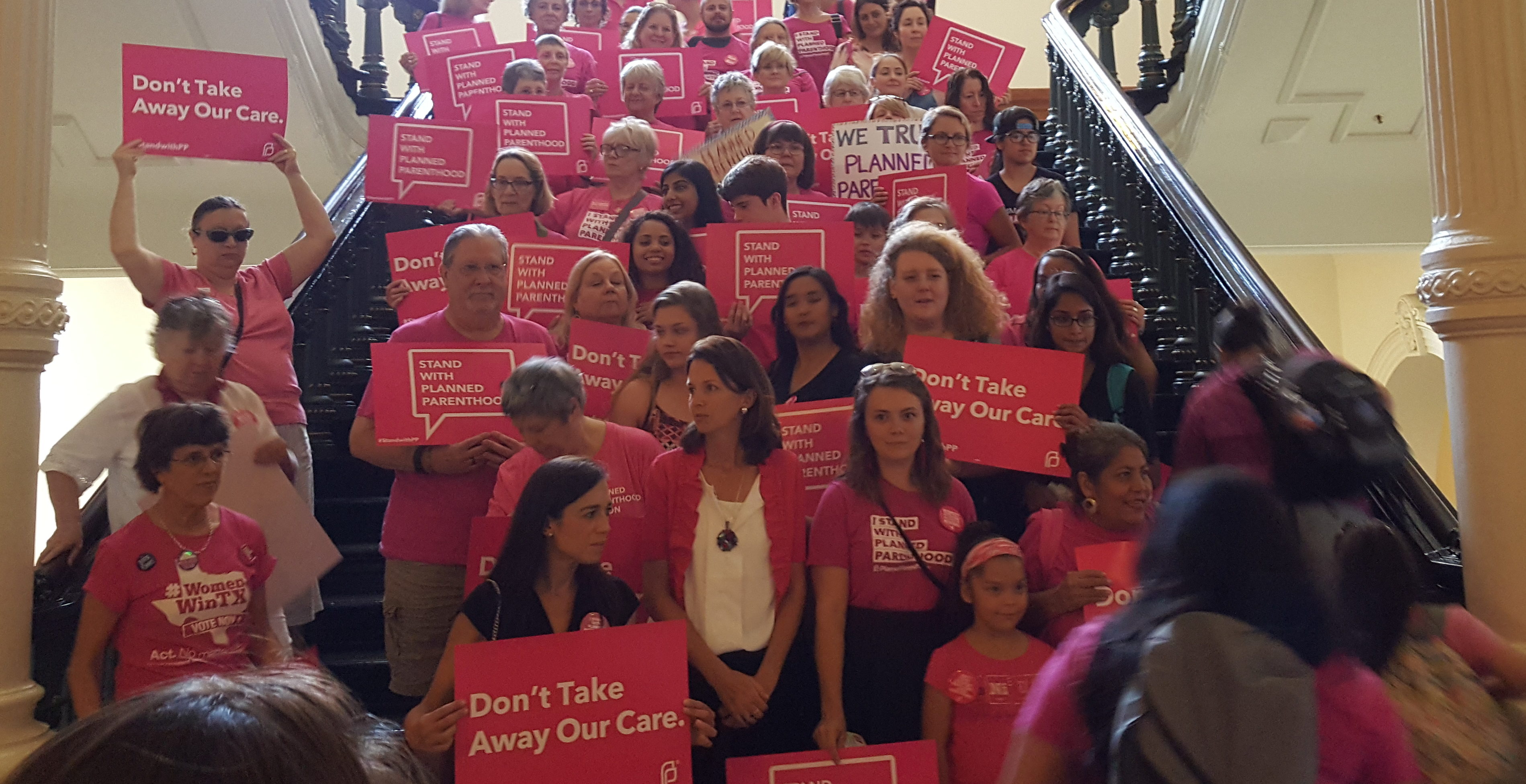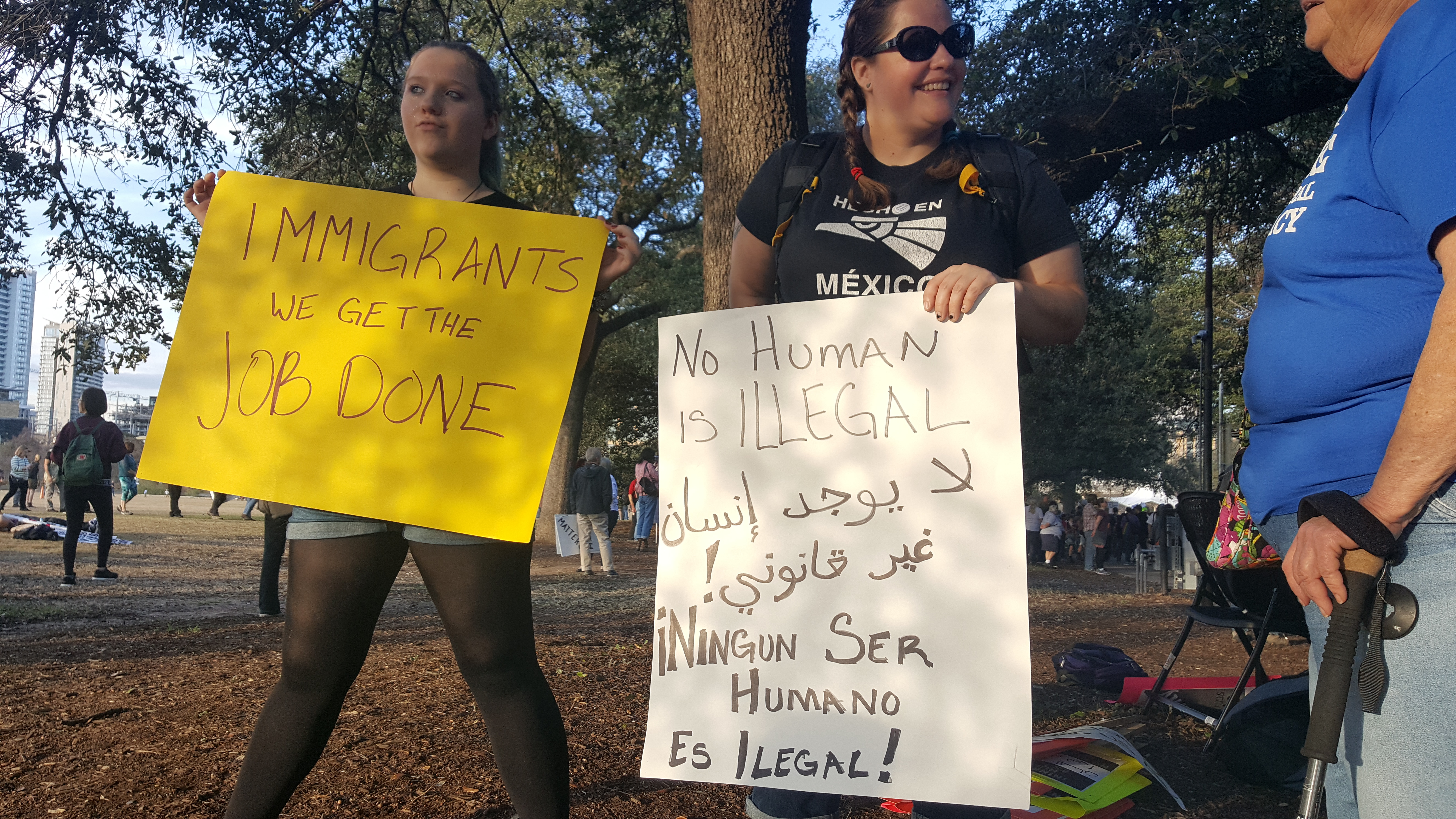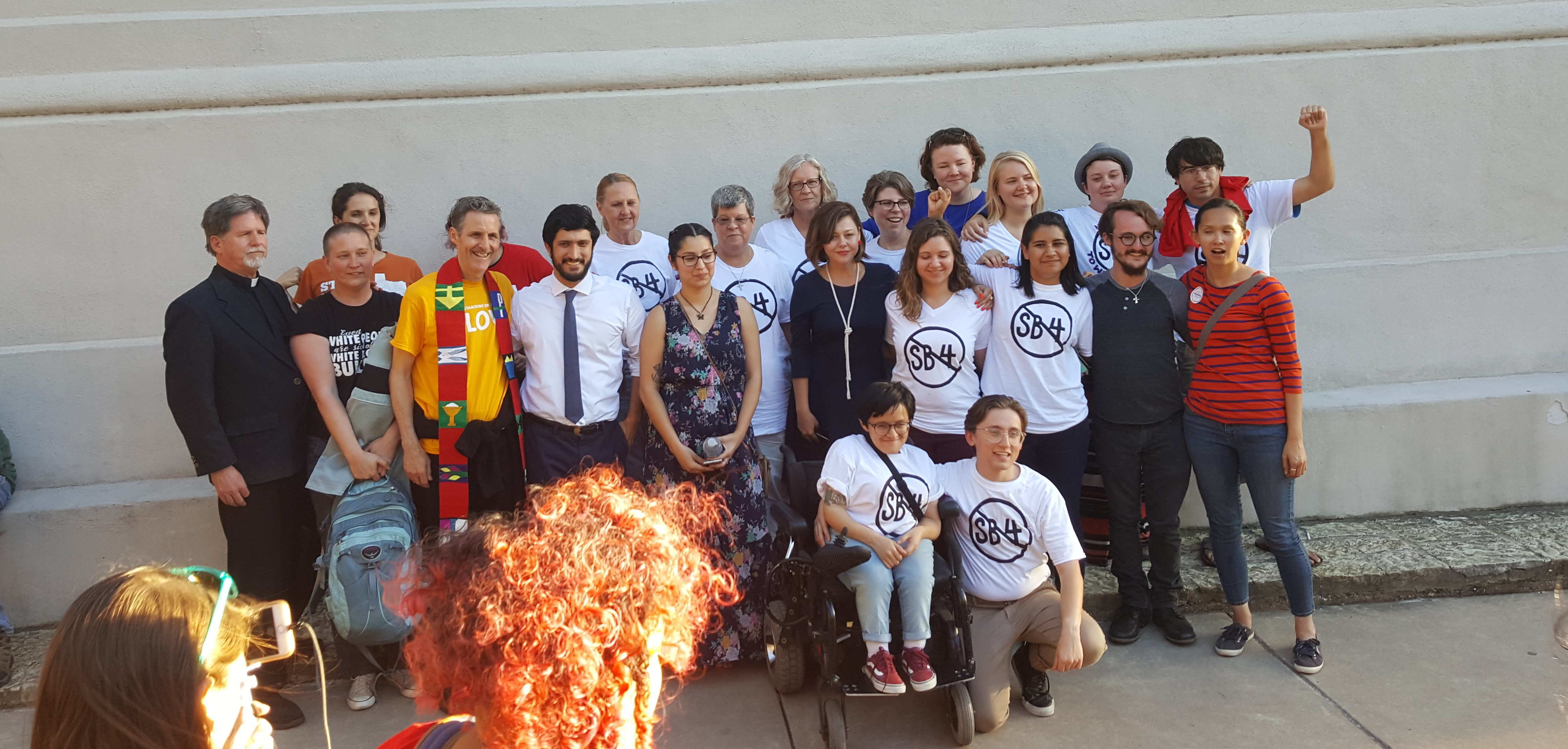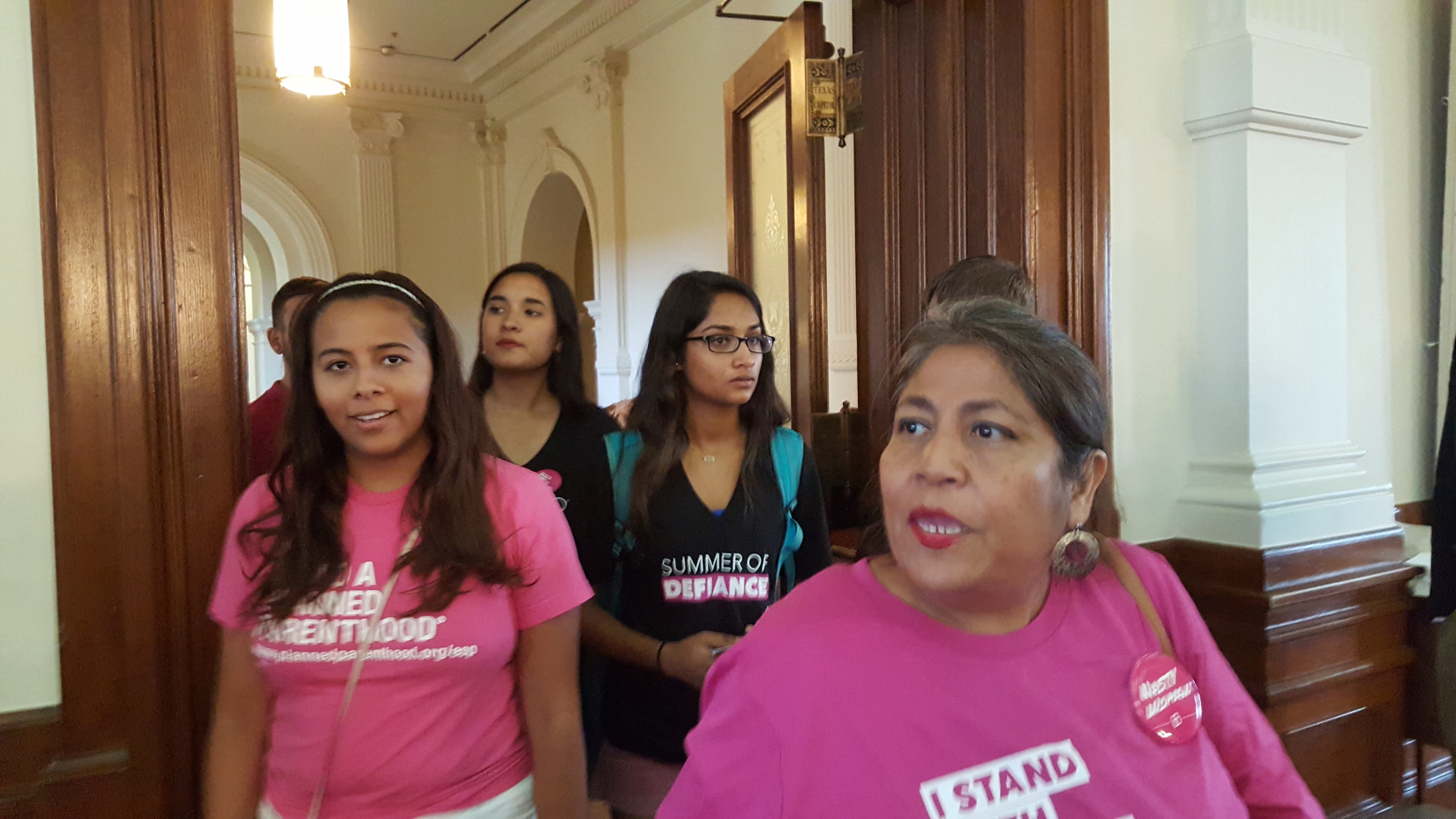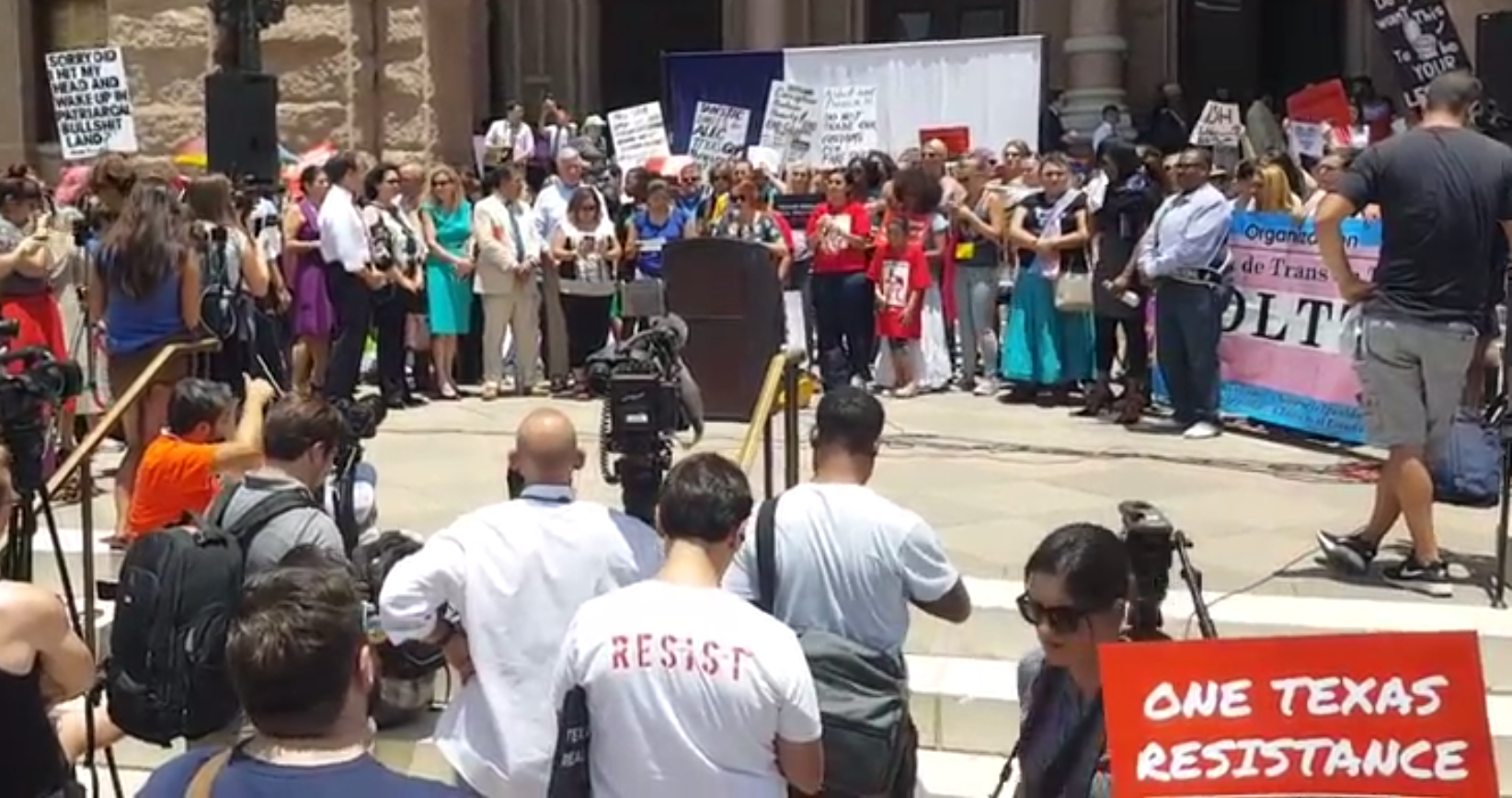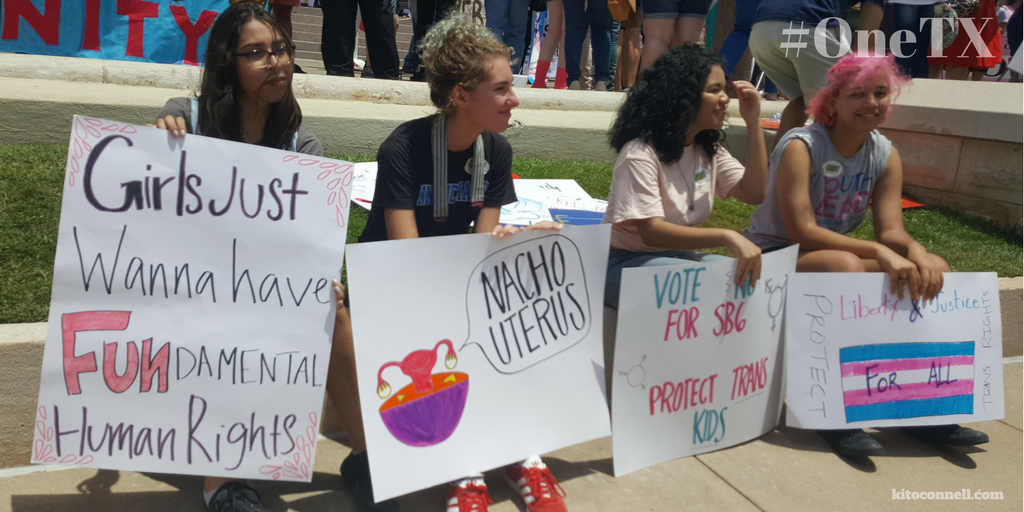The halls of the Texas State Capitol are no strangers to protests, but for organizers witnessing a resurgence of grassroots advocacy and activism, it’s a heartening sign after a series of discouraging years.
Thousands joined the 2013 “people’s filibuster” against HB 2, the omnibus anti-choice bill that eventually made its way to the U.S. Supreme Court, but then momentum faltered with the defeat of Wendy Davis (and other Democratic candidates) in the 2014 election, followed by more setbacks in the intervening years of elections and Republican-led legislative sessions.
After the 2017 legislative session, Texas Republicans ensured that crucial funding bills remained unpassed, forcing lawmakers to return for a special session that costs taxpayers thousands of dollars per day. The Republicans hope to use this opportunity to build on new restrictions on abortion and a “Show Us Your Papers” anti-immigrants’ rights law, both subject to ongoing lawsuits, while forcing through unpopular and discriminatory legislation that failed to pass during the regular term.
